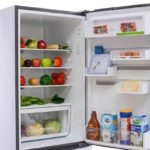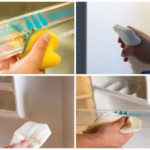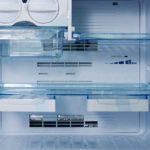When it comes to household appliances, the refrigerator is perhaps the device that needs to maintain the longest power supply. Most households use the refrigerator 24/7 and more than 300 days a year, only disconnecting the power when cleaning and when away for extended periods.
Therefore, the refrigerator operates day and night, so if not used efficiently, it can be very energy-wasting. Apply the following tips immediately:
Set the refrigerator at the appropriate temperature
Most refrigerators have different temperature settings for each compartment, but many people never adjust them, and they may not even know what that adjustment knob is for. The temperature is considered suitable at 0-5 degrees for the cooling compartment and -18 degrees for the freezer compartment (corresponding to levels 3 and 4 out of 5 levels). However, you should adjust it when the weather changes and when there is less food to save the most.

Applying these tips helps reduce energy consumption
Note the amount of food in the refrigerator
It doesn’t mean that the less food you have, the more energy-saving it is. Putting too much in the refrigerator will block the cooling area, causing the refrigerator to work harder, while putting too little will cause the refrigerator to run all day and night, resulting in waste of energy. Therefore, always fill the refrigerator to about 70-80% of its capacity to allow cool air to flow to the necessary areas, maximize energy savings, and achieve the best results in food preservation.
Plan what you need to limit opening and closing the refrigerator door
Instead of remembering what you need, then opening the refrigerator to get it when cooking, you should figure out what you need in the refrigerator during the same meal to open the refrigerator less frequently and for the shortest time possible. Each time you open and close the refrigerator, it has to start up again and consumes more energy. Moreover, continuous opening and closing can also affect the quality of the food inside. There is a significant temperature difference between the inside and outside of the refrigerator; when you open it, the temperature inside the refrigerator will increase, and the refrigeration unit will have to work harder to regulate it, resulting in higher power consumption.
Keep the refrigerator clean
Clean the refrigerator at least twice a year by removing the bottom part of the refrigerator and treating the dust, then thoroughly clean it, which helps save more energy. Small objects or hair will block the ventilation slots or the device coil, making the refrigerator work at a higher capacity to keep the food fresh.
Avoid putting hot items in the refrigerator
If the food is still hot, it will raise the temperature inside the refrigerator, and of course, the refrigerator will have to work harder to cool it down again. Let the food cool completely before putting it in the refrigerator to save maximum energy.
Place the refrigerator in a well-ventilated area
The refrigerator is a cooling device but needs to dissipate heat from the sides of the refrigerator. Therefore, if you place the refrigerator near other heat-emitting devices such as the stove, microwave, or oven, the refrigerator will have difficulty releasing heat, so it will quickly break down and consume more power. The cooler environment around the refrigerator will save much more energy.
Pay attention to the containers for storing food
When storing food in the refrigerator, you should pay attention to the containers used. If stored in stainless steel containers, the food will cool faster, both delicious and more energy-saving. But if stored in thick plastic or heavy porcelain containers, it will consume more power to cool.
Discover the Quickest Way to Clean Your Fridge for Tet in Under 20 Minutes
As we approach Tet, preparations for the New Year can seem endless. From cleaning the house to sorting through cabinets, it can be a taxing process. But perhaps the most dreaded New Year chore is refrigerators. No need to fret, though – with these helpful tips, you’ll have a clean fridge in no time – just 20 minutes!



































